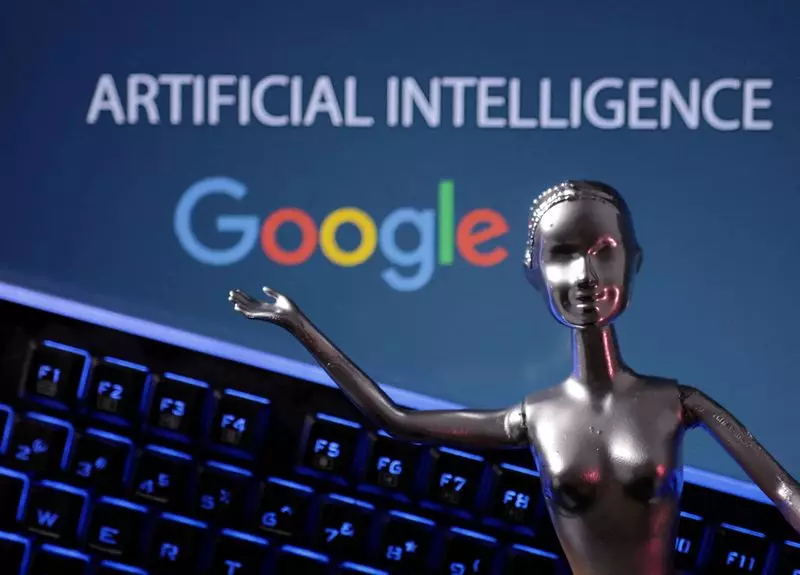In an era dominated by rapid advancements in artificial intelligence (AI), Google, a subsidiary of Alphabet Inc., finds itself at a critical juncture. The increasing scrutiny from regulators across the globe poses significant challenges, prompting the tech giant to embark on initiatives that aim to not only comply with upcoming regulations but also proactively shape policy discussions surrounding AI. Understanding that public perception and educational outreach are vital to these goals, Google’s executives have emphasized educational programs as key strategies to pave a smoother path forward amidst a turbulent regulatory environment.
Kent Walker, Google’s president of global affairs, articulated a vision centered around the intersection of public education and AI policy formation. His assertion that greater familiarity with AI technologies will lead to improved regulatory outcomes underscores a fundamental belief within the company—that informed users, including businesses and governmental entities, can contribute to more effective and beneficial AI policies. Google’s push to expand educational programs, such as the recently announced $120 million investment fund for AI education, serves a dual purpose: it aims to quell fears surrounding job displacement due to AI and to create a knowledgeable workforce that can manage and innovate with these emerging technologies.
The initiative not only responds to the pressing demand for AI literacy but also strategically positions Google in ongoing discussions about ethical AI deployment. By investing in programs that prepare workers for an evolving job market, Google seeks to establish itself as a leader in responsible AI development while simultaneously alleviating public anxiety about potential job losses.
The regulatory landscape surrounding AI is becoming increasingly complex, particularly in regions like Europe and the United States. The European Union’s proposal for an AI Act reflects growing concerns regarding the ethical implications and potential risks associated with AI technologies. With tech giants facing possible multibillion-dollar fines, the urgency for companies like Google to advocate for constructive regulation is more pronounced than ever.
To navigate this environment, Google is not simply reacting to regulatory pressures but is taking proactive steps to influence forthcoming policies. This approach manifests in campaigns like “Grow with Google,” which aims to enhance workforce skills in areas pertinent to AI, such as data analysis. This initiative has proven effective; Google reported that approximately 1 million individuals had already obtained certification through its programs. By fostering partnerships with community colleges and offering specialized courses aimed at preparing individuals for AI-related careers, Google aspires to become an essential player in the dialogue surrounding AI regulations.
One of the primary concerns regarding AI is its potential to displace workers. Research from Google and other institutions, including Goldman Sachs and McKinsey, suggests that while AI may not completely replace most jobs, the nature of work is destined to change profoundly. Walker emphasized this in his discussions on the necessity of preparing workers for this transition. The company recognizes that providing education and credentials to individuals is paramount to ease the shift toward a more AI-integrated workforce.
Moreover, Google’s collaboration with community colleges to develop programs aimed at readiness for upcoming job opportunities—particularly in constructing data centers—demonstrates a commitment to easing the transition for those who may find their positions obsolete. The integration of AI education into these programs serves as a model that can adapt to the evolving job market, emphasizing practical skills alongside theoretical knowledge.
As Google explores the implications of AI for the future workforce, the company has enlisted experts like economist David Autor to delve into the potential impacts of AI on employment. Autor advocates for more immersive training solutions, likening them to simulation-based learning in aviation. By utilizing advanced AI technologies to develop effective adult retraining programs, Google aims to counter the historical challenges associated with adult education, which often deter individuals from returning to formal learning environments.
Ultimately, Google’s initiatives reflect a dedication to not only leading in AI innovation but also ensuring that this leadership translates into positive societal impacts. By focusing on education and collaboration with various stakeholders, Google is attempting to mitigate the potential risks associated with AI while fostering an informed workforce capable of harnessing its benefits.
As the regulatory landscape evolves, Google’s strategic emphasis on education as a means to influence policy sheds light on a broader trend within the tech industry. In preparing the workforce for an uncertain future, the company is not only striving to comply with regulations but also to play a role in crafting the narrative around AI. Through educational initiatives and collaborations, Google aims to ensure that advancements in technology not only drive innovation but also promote social responsibility and economic resilience in a rapidly changing world.

